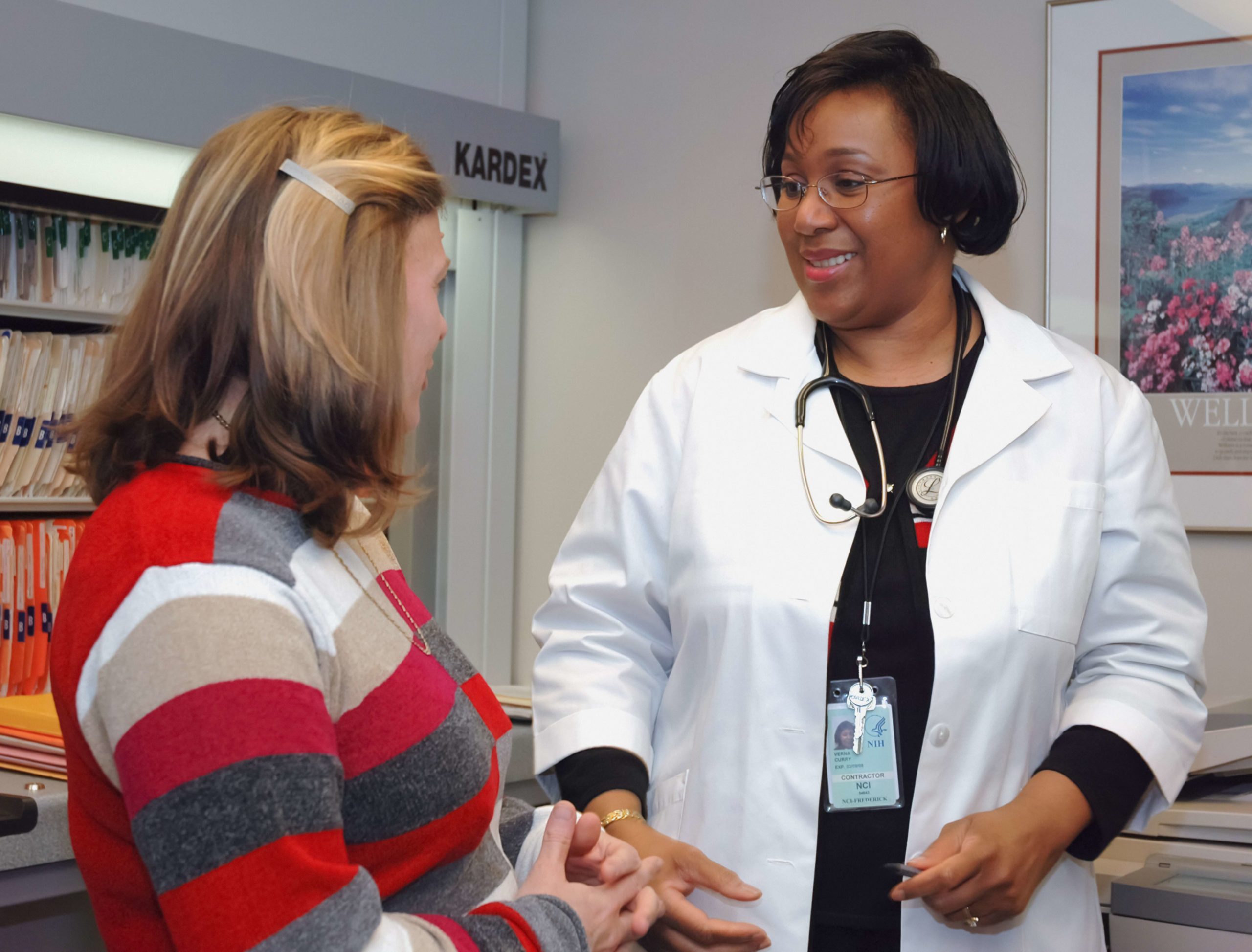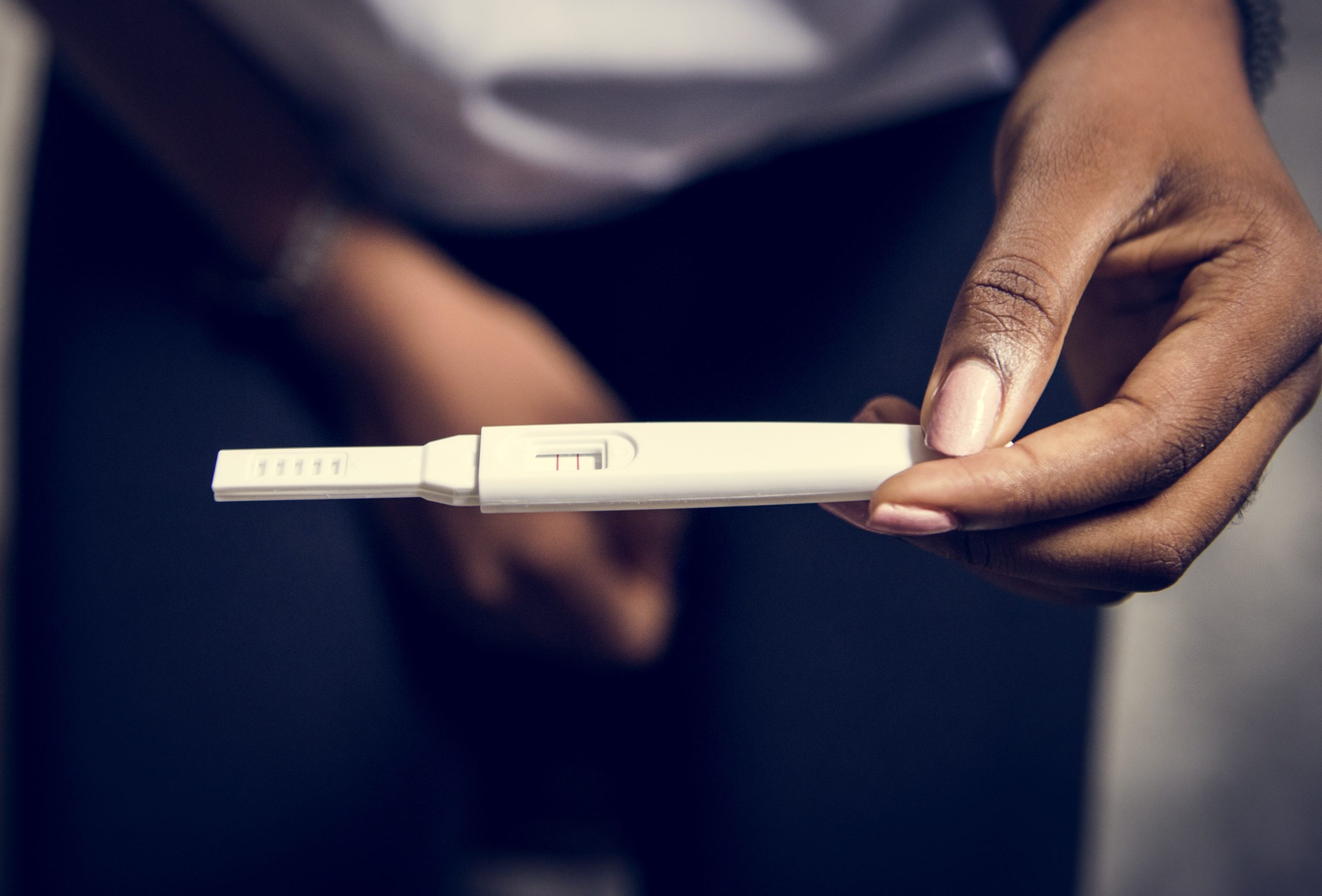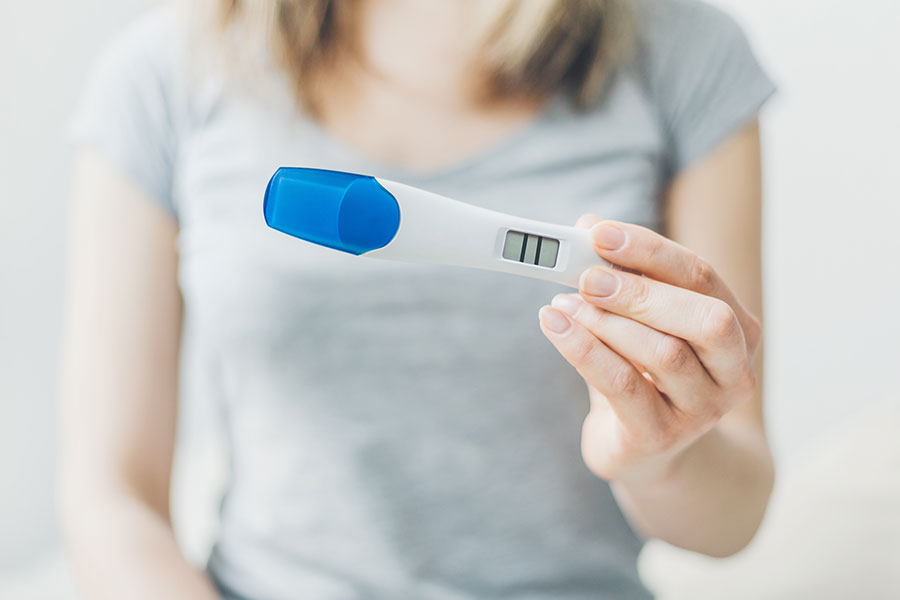
What Is the Difference Between a Blood and Urine Pregnancy Test?
Are you experiencing a missed period, nausea, frequent urination, or moodiness? These are common symptoms that may point to pregnancy. Maybe you’re wondering what kind of pregnancy test to take. The main difference between a blood and urine pregnancy test is how they are done and where. Keep reading to learn more.
Different Types of Pregnancy Tests
There are two main types of pregnancy tests: urine pregnancy tests and blood pregnancy tests.
A urine test is taken at home and followed up with a medical professional while a medical center performs blood pregnancy tests.
Urine Pregnancy Tests
You may have already taken an at-home urine pregnancy test. This is the most common type, which measures hCG (human chorionic gonadotropin) in your urine. According to the Mayo Clinic, you should take an at-home test at least one week after your missed period for the most accurate results.
At-home urine pregnancy tests are 99% effective and are very easy to use. When taking a urine test, you will place a couple of drops on a strip or place the strip in the urine stream. Then you will wait a couple of minutes, up to 10 minutes, for the results depending on the type of test.
Blood Pregnancy Tests
Though blood pregnancy tests are rare, they are done on special occasions for women facing infertility or when a medical professional suspects any possible health or pregnancy issues. A medical professional may also use a blood test to compare hCG levels during pregnancy.
Blood tests are more sensitive than urine tests due to their ability to detect smaller amounts of hCG. They can show you a more accurate answer earlier on in pregnancy.
A blood test will require a blood sample to be sent to a lab for analysis. As a result, you may not have the results for more than a day.
If Your Pregnancy Test is Positive
If your at-home pregnancy test was positive and you’re wondering what’s next, see us today at First Care.
Once you receive a positive pregnancy test at our center, an ultrasound is necessary to understand your options moving forward. An ultrasound will give you more pregnancy details and alert you to any possible complications.
Schedule a free and confidential appointment with us. Same-day appointments are available. We are here for you!
Learn More
How Do Pregnancy Tests Work?
Still wondering if you really are pregnant? Maybe you’re second-guessing how you took a pregnancy test or wondering if you need to take another one.
In this blog, we want to share all about how pregnancy tests work and why receiving a lab-quality pregnancy test at your local pregnancy center is a good idea for pregnancy confirmation.
How Do Pregnancy Tests Work?
Pregnancy tests are very simple to take. They indicate if you’re pregnant by determining the amount of human chorionic gonadotropin (hCG) in your body. HCG is only present when you’re pregnant, so it’s called the pregnancy hormone.
Some pregnancy tests might go about testing through urine, while others look for the pregnancy hormone in your blood. More commonly, a simple urine pregnancy test is done.
The best way to get accurate pregnancy test results is by waiting at least one day after your missed period. Waiting a bit after your missed period allows your body to produce a detectable amount of hCG.
Confirm Your Pregnancy Test Result
If you received a positive home pregnancy test result – that is a great first step. Your next best step is to receive a lab-quality pregnancy test to confirm your pregnancy.
Though home pregnancy tests are very accurate, there is always a chance for inaccurate results. You could have possibly taken the test at the wrong time or accidentally followed the directions incorrectly. Get clarity today with a follow-up lab-quality pregnancy test to be sure.
Free Pregnancy Tests & Ultrasound
First Care provides free and confidential, lab-quality urine-based pregnancy testing and ultrasounds to confirm your pregnancy.
If you receive a positive pregnancy test result at our center, we can provide you with an ultrasound. An ultrasound will verify if you have a viable pregnancy, how far along you are, and the location of your pregnancy.
Our medical team is here for you and can walk you through all your pregnancy options. Schedule a free appointment today. Same-day appointments are available.
You are not alone!
Learn More
Am I Pregnant? Take This Online Test
Have you missed your period by a couple days and wondering if are pregnant? Answer the questions below and note how many you answer “yes” to.
- Have you missed a period?
- Are you more tired than usual?
- Have you lost weight?
- Do you have to pee more often?
- Do your breasts feel swollen, sore or tender?
- Have you gained weight?
- Do you feel like throwing up?
- Are you experiencing headaches?
- Are you having mood swings?
- Do you feel dizzy?
- Have you noticed a change in your appetite?
If you answered yes to at least four of these questions, there is a chance you could be pregnant.
The only way to know for sure is to take a pregnancy test. First Care provides free lab-grade pregnancy testing and ultrasounds which can verify pregnancy and help determine how far along you are.
Even if you have taken a positive home test, we can confirm your pregnancy and provide information on your options. Our staff are trained to help you navigate your potential pregnancy and connect you to resources you may be in need of.
Schedule an Appointment
Your next step? Contact us by text or phone at 612-712-3974. Or schedule a confirmation pregnancy test online.
Learn More
10 Signs You Might Be Pregnant
Have you ever watched one of those reality TV shows where someone didn’t know she was pregnant until she went to the hospital in labor? How did she miss the signs that she might be pregnant? It’s easy to wonder how the warning signs most women experience throughout pregnancy were missed!
You will be better prepared to identify symptoms early on in pregnancy with the list below.
Early Pregnancy Symptoms
- Missed period: Some women have very regular menstrual cycles and notice they are late right away. Being a few days late may seem normal for others with more irregular periods. Our pregnancy tests are accurate 20-24 days after a woman’s first day of her last period. By the time you have missed your period, the test is usually within the accurate time frame.
- Nausea: Women experience nausea in pregnancy at varying intensities, and some don’t experience it all. Nausea/vomiting in pregnancy is sometimes referred to as “morning sickness.” Nausea can occur at any time throughout the day or night.
- Swollen/tender breasts: Your body releases hormones that can cause breasts to feel sore, swollen, tight, or even itchy. Your breasts will go through many changes throughout pregnancy to prepare for nourishing your little one after birth.
- Fatigue: It is common for women in their first trimester to feel very tired, sometimes for no reason. This generally improves by the second trimester.
- Frequent urination: You may feel the need to urinate often as your growing uterus can press against your bladder.
- Increased appetite: You may notice you feel more hungry than usual. In addition, pregnant women often times experience intense food aversions or cravings.
- Mood changes: You may notice mood swings as changing levels of hormones can impact your ability to regulate emotions.
- Light spotting/implantation bleeding: Light spotting (noticing a pink-tinge when you wipe) that occurs about 3-4 weeks after a woman’s first day of her last period can be a sign of implantation bleeding, which is considered to be normal. Contact your doctor with any concerns surrounding heavier vaginal bleeding.
- Headaches: Headaches are commonly reported by women during pregnancy. While mild headaches early in pregnancy are generally considered to be normal, any headaches accompanied with blurred vision, dizziness, or spots in your eyes should be reported to your doctor.
- Constipation/bloating: Changing levels of hormones can slow down the passage of food through a pregnant woman’s digestive tract. Drinking water, walking, and a high-fiber diet can help promote a healthy gut.
How Do I Know For Sure?
We can help if you are questioning if you may be pregnant!
All of our First Care centers offer lab-quality pregnancy tests with results in 3-5 minutes. Walk in to one of our centers or schedule online for a free pregnancy test and support services.
London, M. L., Ladewig, P. W., Davidson, M. R., Ball, J. W., McGillis, R. C., & Cowen, K. J. (2017). Maternal & Child Nursing Care (5th ed.). Boston: Pearson Education, Inc.
Learn More